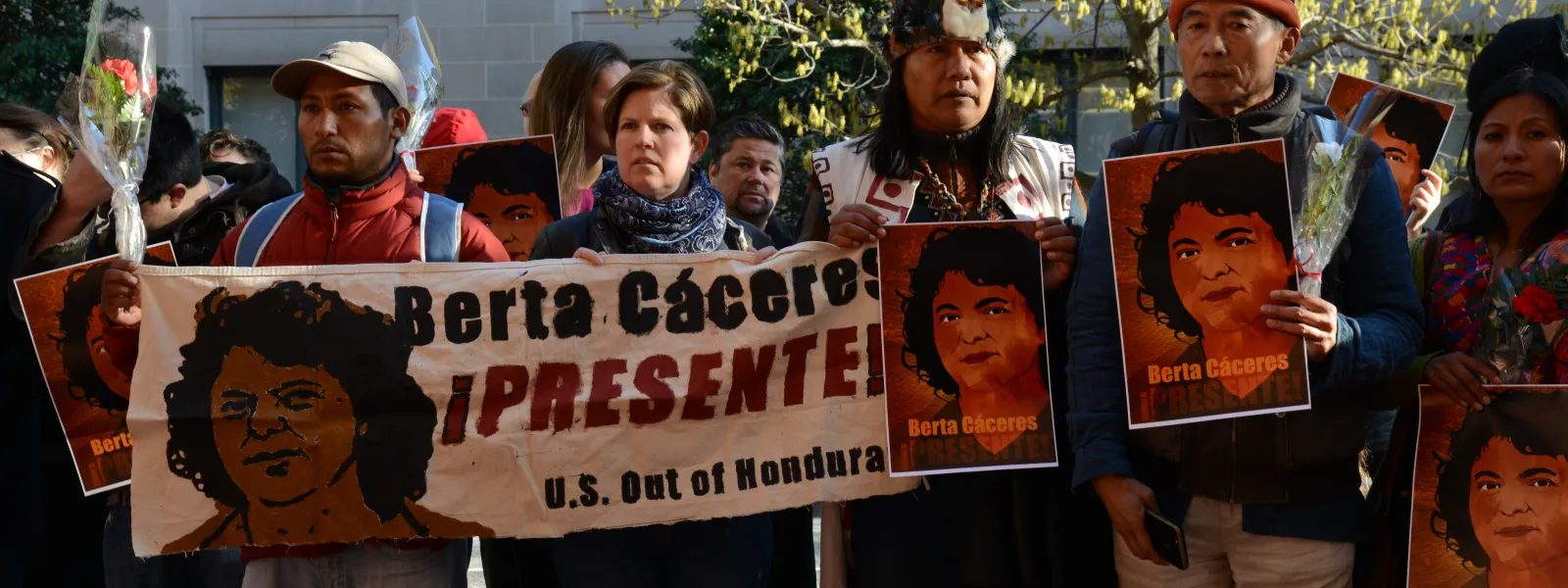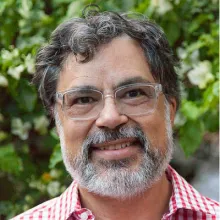
Activist Deaths Demand Accountability
Credit: Juan Manuel Herrera/OASLast year 185 environmental activists were murdered world-wide, two-thirds from Latin America, according to Global Witness. Of the ten most dangerous countries in the world for environmental defenders, seven are in Latin America.
The brave activists we lost were killed for resisting mines, dams, and other destructive industrial projects. Now, more than ever, we must demand accountability. For the loss to the environment, the loss of indigenous cultures, the loss of human rights.
That just got harder. On May 23 the Inter-American Commission on Human Rights announced a severe financial crisis leading to “suspension of [scheduled] hearings and imminent layoff of nearly half of its staff.”
While the Commission has long been short on funds, this is the worst financial crisis it has ever seen. The Commission depends on funding from the Organization of American States (OAS), governments in the Americas and Europe, organizations, and foundations. Nearly all governments have decreased or failed to honor their financial commitments.
The financial crisis demonstrates that our work, and the work of colleagues, communities, and movements, is having an impact. The Commission has produced important decisions in cases involving indigenous and community rights, land and environmental protection, and destructive development projects. For a few years countries have complained that the Commission is going beyond its mandate in cases involving development projects. But of course, when development projects violate human rights, they clearly fall within the purview of the Inter-American Human Rights System.
The Belo Monte Dam case provides clear evidence that this manufactured crisis is a result of our effectiveness. In 2011 the Commission granted the precautionary measures our colleagues and we requested on behalf of affected indigenous communities. Brazil reacted by immediately withdrawing its ambassador to the OAS and by withholding funding for the rest of the year. A new ambassador did not return until 2015 and Brazil’s payments haven’t normalized since. In addition, after the precautionary measures were issued Brazil started an aggressive process to “reform” the Commission that ended by weakening its power.
At AIDA we have analyzed how the crisis affects our cases before the Commission; how it affects future cases that need international attention; and how it affects human rights protection in the Americas.
- Current cases will likely be delayed. Our case on toxic poisoning in La Oroya, Peru is already seriously delayed. The Commission has promised to release a report on the merits so the case can be taken to the next level, the Inter-American Court of Human Rights. We have been told the Commission will approve the report, which has been completed, this year—despite losing 40% of its staff. This remains to be seen. Of course, we have contacted the Commission and stressed the importance of advancing the case. Informally, some judges from the Inter-American Court have indicated their eagerness to receive the case.
Processing the Belo Monte case has only just started, after pending four years at the Commission. Strong political pressure from Brazil will likely delay it further. But political pressure on Brazil and the Commission can help the case move faster. As Belo Monte is linked to the biggest corruption scandal in Brazil, maybe the Commission will understand how relevant it is to advance the case. We will continue advocating for priority processing.
- New cases require further evaluation. We plan to bring at least one new case to the Commission soon, because unless we meet a deadline in a few weeks, the statute of limitations will prevent its consideration. All domestic remedies have been pursued; the Commission represents the last chance for justice. Despite the uncertainties of the current situation, it is important to preserve our clients’ rights in case the Commission’s funding is brought back to an adequate level.
In other cases, we are looking for different ways to achieve justice. For example, we are exploring more than ever the use of national courts and national authorities. In addition, we are looking for new ways to engage financial institutions to prevent funding of projects that harm the environment and human rights.
- We are working with other organizations to develop response strategies. One of our attorneys, Rodrigo Sales, a Brazilian lawyer, recently represented AIDA at the General Assembly of the OAS. He advocated for human rights solutions in the region, among other issues. We consider collaboration and cooperation among the human rights and environmental communities to be essential. We need to stand together, showing governments and the public that human rights and the Commission are of vital importance.
The financial crisis of the Commission—an international entity for hearing and resolving hemispheric human rights concerns—is an urgent issue that requires common understanding, thinking, strategizing, and acting.
AIDA is working to make this happen.
Wayne Salazar

Wayne Salazar has helped environmental attorneys to define project goals and objectives since 2003. He was Director of Foundation Relations at Earthjustice for ten years before joining the AIDA team in 2013. He led a team that raised $48 million for projects that address marine protection, climate change, biodiversity and public lands conservation, air and water quality, and environmental justice through national and international law. His background in donor development, strategic planning, project development, and communications also includes work with agencies providing poverty law, social service, and art programs. He earned a Bachelor of Fine Arts degree from the School of Visual Arts and a Master of Fine Arts degree from Hunter College.
